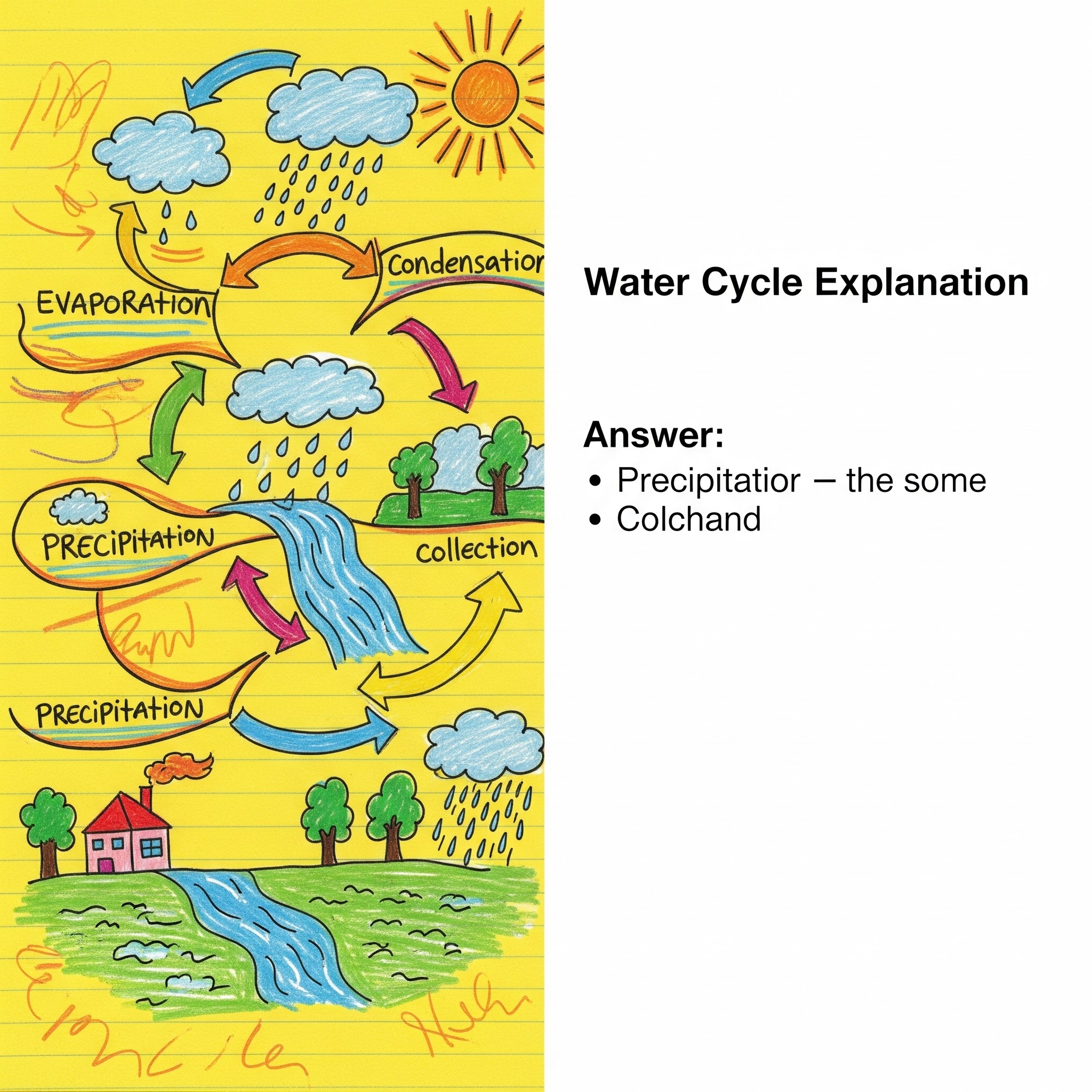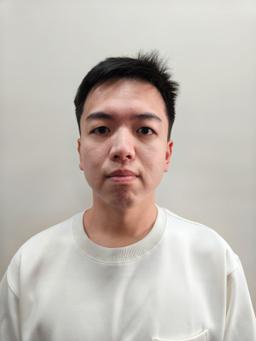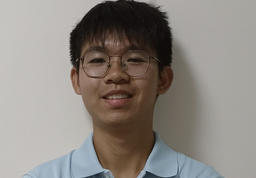The 'Keyword' Trap: Why Your Child Understands Science But Is Still Losing Marks
- Discover why smart children lose marks despite understanding concepts perfectly
- Learn the specific language patterns Singapore examiners look for
- Get actionable strategies to fix this during the November-December holidays
The "A-ha!" Moment of Frustration
Picture this: You're reviewing your child's homework and ask them to explain condensation. Without hesitation, they respond, "It's when warm air hits a cold glass and turns into water."
You think to yourself, "Perfect! They completely understand this concept."
Then the exam results arrive. That condensation question? Zero marks out of two possible marks.
The answer key demanded something far more specific: "Warm water vapour loses heat to the cooler surface and condenses into tiny water droplets."
Welcome to what I call the 'keyword trap' - the frustrating gap between genuine understanding and exam success that's plaguing thousands of Singapore students. After working with families navigating our education system for over a decade, I've seen this scenario play out countless times.

According to recent MOE curriculum guidelines, Primary School science assessments increasingly emphasize precise scientific language. Yet many students - and their parents - remain unaware of just how specific these language requirements have become.
Why This Happens (And Why It's Not Your Child's Fault)
PSLE Science Has Become a "Language" Test
Here's what many parents don't realize: Singapore's Primary School Leaving Examination doesn't just test what your child knows. It tests whether they can communicate that knowledge using precise scientific terminology.
The Singapore Examinations and Assessment Board has consistently moved toward more rigorous marking schemes that reward specific vocabulary usage. This shift reflects Singapore's push toward developing students who can articulate scientific concepts with precision.
Consider these examples of how "common sense" answers differ from "exam-ready" responses:
Heat Transfer:
- Child's answer: "The metal spoon gets hot because heat moves from the soup."
- Exam requirement: "Heat energy is transferred from the hotter soup to the cooler metal spoon through conduction."
Plant Nutrition:
- Child's answer: "Plants need sunlight to make their own food."
- Exam requirement: "Plants trap light energy using chlorophyll to carry out photosynthesis, converting carbon dioxide and water into glucose."
The "Half-Mark" Problem That's Killing Grades
Examiners receive detailed marking schemes with specific keywords that must appear for full marks. Missing just one crucial term - like "loses heat" or "light energy" - can cost your child half the available marks for that question.
This creates what I call the "death by a thousand cuts" phenomenon. Your child might demonstrate solid understanding across an entire paper, but lose 8-10 marks through missing keywords. In Singapore's competitive grading system, that's often the difference between an 'A' and an 'A*'.
💡 Pro Tip: Research from the National Institute of Education shows that students who master scientific vocabulary early consistently outperform peers with similar conceptual understanding but weaker language skills.
Three Warning Signs Your Child Is Stuck in the 'Keyword' Trap
1. The "But I Knew the Answer!" Syndrome
Your child consistently expresses genuine shock and frustration when reviewing marked papers. They insist they understood every question, yet their scores don't reflect this confidence. This disconnect signals that they're thinking correctly but communicating inadequately.
2. Answers That Are Too Concise
Watch how your child tackles open-ended questions. If they're writing single sentences for 2-mark questions or brief phrases for explanation tasks, they're likely missing the elaboration that examiners expect.
For example, when asked "Why do we see lightning before hearing thunder?", a trapped student might write: "Light is faster than sound." While technically correct, this misses the detailed explanation examiners want: "Light travels much faster than sound waves, so the light from lightning reaches our eyes before the sound waves from thunder reach our ears."
3. Over-Reliance on Memorized Facts
Many students memorize isolated facts ("Photosynthesis needs light") without grasping the explanatory frameworks examiners expect ("Light energy is absorbed by chlorophyll and converted into chemical energy during photosynthesis").

How to Fix This During the November-December Holidays
Why This Holiday Period Is Critical
The year-end school holidays represent the only extended period when students aren't overwhelmed with new content. During the regular school year, children are too busy absorbing fresh concepts to address fundamental communication gaps.
This low-pressure window is perfect for rewiring how your child approaches scientific explanations.
Solution 1: Shift from Content Review to Answer Architecture
Stop asking "What is photosynthesis?" and start asking "How would you explain photosynthesis to earn full marks?"
This subtle shift transforms your child's mindset from passive recall to active communication. Practice restructuring their natural explanations into exam-ready formats:
Natural explanation: "Plants make food using sunlight"
Exam-ready version: "Plants use chlorophyll to trap light energy and convert carbon dioxide and water into glucose through photosynthesis"
Solution 2: Build Topic-Specific Keyword Banks
Rather than generic study notes, your child needs curated vocabulary lists for each science topic. For instance:
Heat Topic Keywords:
- Gains/loses heat energy
- Conducts/insulates heat
- Hotter/cooler regions
- Heat transfer/conduction/convection
Electricity Topic Keywords:
- Complete/incomplete circuit
- Electrical energy
- Current flows through
- Conductor/insulator of electricity
These aren't just words to memorize - they're building blocks for constructing complete, mark-worthy explanations.
Solution 3: Use Diagnostic Targeting
Don't waste time reviewing every Primary 5 topic. Instead, identify precisely where your child's keyword gaps lie. Some students struggle with Heat and Temperature but excel at Plant Systems. Others master Electricity but falter on Matter concepts.
A diagnostic approach saves time and maximizes improvement by focusing effort where it's most needed.
💡 Pro Tip: According to MOE's science curriculum framework, students should demonstrate both conceptual understanding and communication skills. The keyword trap primarily affects the communication component.

Our Personalized Solution: Beyond Generic Tuition
Why One-Size-Fits-All Approaches Fail
Traditional tuition centers focus on content delivery - more worksheets, more practice papers, more drilling of concepts your child already understands. This approach misses the real problem: the communication gap between understanding and expression.
Your child doesn't need more science facts. They need personalized coaching to bridge their specific language gaps.
Our Three-Phase Approach
Phase 1: Precise Diagnosis
Using our specialized diagnostic assessments, we identify exactly which topics generate keyword-related mark losses. Rather than assuming weaknesses, we pinpoint them through targeted testing that reveals communication gaps while confirming conceptual understanding.
Phase 2: Strategic Curation
We provide carefully structured notes designed as "answer templates" and "keyword banks" rather than information dumps. Each topic comes with:
- Essential vocabulary lists
- Sentence starters for different question types
- Common examiner expectations
- Worked examples showing weak vs. strong answers
Phase 3: Targeted Practice Drilling
We focus exclusively on open-ended questions where keyword mastery makes the biggest difference. Through repeated practice with immediate feedback, students develop automatic habits of scientific language use.
Students work with our experienced tutors who understand Singapore's examination requirements intimately. They've seen the marking schemes, know the examiner expectations, and can guide students toward exam success while preserving genuine understanding.
Success Indicators We Track
📚 Key Insight: We measure progress through:
- Increased use of scientific terminology in explanations
- Higher marks on open-ended questions during practice
- Greater confidence when tackling unfamiliar question formats
- Improved ability to self-check answers for completeness
Frequently Asked Questions
Q: How long does it take to overcome the keyword trap?
A: Most students show significant improvement within 4-6 weeks of focused practice. However, developing automatic scientific language habits typically requires 2-3 months of consistent reinforcement.
Q: Will focusing on keywords hurt my child's genuine understanding?
A: Not when done correctly. Our approach builds scientific language skills on top of existing understanding, enhancing rather than replacing conceptual knowledge. Students learn to express what they already know more effectively.
Q: How is this different from regular science tuition?
A: Traditional tuition often re-teaches content your child already grasps. We specifically target the communication skills needed to demonstrate that understanding on examinations. It's coaching rather than teaching.
Q: Can parents help with this at home?
A: Absolutely. Start by asking your child to elaborate on their initial answers. When they say "Plants need light," prompt them with "Can you explain that using more scientific words?" Gradually, they'll internalize the need for precision.
The Stakes: Don't Let Hard Work Go Unrewarded
Your child is bright. Their understanding is genuine and their curiosity about science is real. The tragedy of the keyword trap is watching capable students lose marks not because they don't know the material, but because they haven't learned how to communicate their knowledge in exam-appropriate language.
In Singapore's competitive academic environment, these seemingly small language gaps have significant consequences. They affect streaming decisions, secondary school placements, and ultimately, your child's confidence in their academic abilities.
The November-December holidays offer a unique opportunity to address this issue before it becomes entrenched. Students who fix their keyword gaps during this period typically see immediate improvement when school resumes, creating positive momentum for the crucial final term.
Your Next Steps: Taking Action This Holiday
Don't let another semester pass with your child losing marks they should be earning. The keyword trap is completely solvable with the right approach and focused effort.
Start by observing how your child currently answers science questions. Do they use precise scientific terminology? Do their explanations match the complexity that exam questions demand? Can they elaborate on their initial responses when prompted?
For a comprehensive assessment of where your child stands, consider booking a free diagnostic evaluation with our team. We'll show you exactly where the keyword gaps exist and provide a clear roadmap for addressing them.
Our education specialists understand Singapore's examination system intimately and have helped over 350 students bridge the gap between understanding and exam success. We know which keywords matter most, how examiners think, and what it takes to transform capable students into high achievers.
The keyword trap has trapped your child long enough. This holiday, let's set them free.
For more strategies on supporting your child's academic journey, explore our education blog or read testimonials from families who've successfully navigated similar challenges in our success stories section.
Tags:
📚 Related Reading
Polytechnic Open Houses 2026 (Jan 8-10): The Ultimate Guide for O-Level Grads
All 5 Singapore polytechnics are opening their doors Jan 8-10, 2026 - your only chance to experience campus life before JAE applications close. Here's your complete guide to making the most of these crucial three days and choosing the right path for your O-Level results.
Why Starting Tuition in January Beats Waiting Until June: A Singapore Parent's Guide
The 'wait and see' approach costs Singapore students dearly. After helping 350+ families navigate our education system, here's why January tuition starts lead to better outcomes than June panic decisions.
DSA 2026: Why P6 and Sec 3 Students Must Start Preparing in January
The DSA 2026 application window opens in May, but successful students start building their portfolios in January. Here's your strategic guide to creating compelling evidence of talent and achievement before the rush begins.
Need Help with Your Studies?
Get personalized tutoring from The Singapore Syllabus expert team. Our experienced tutors are here to help your child excel in mathematics and science.











